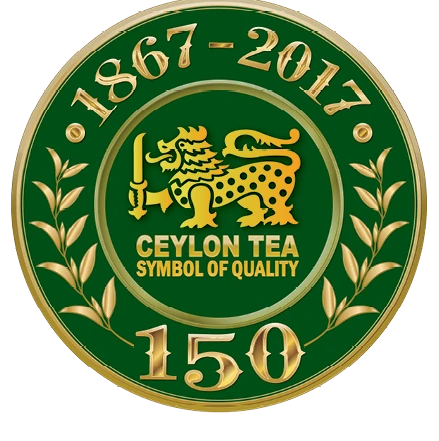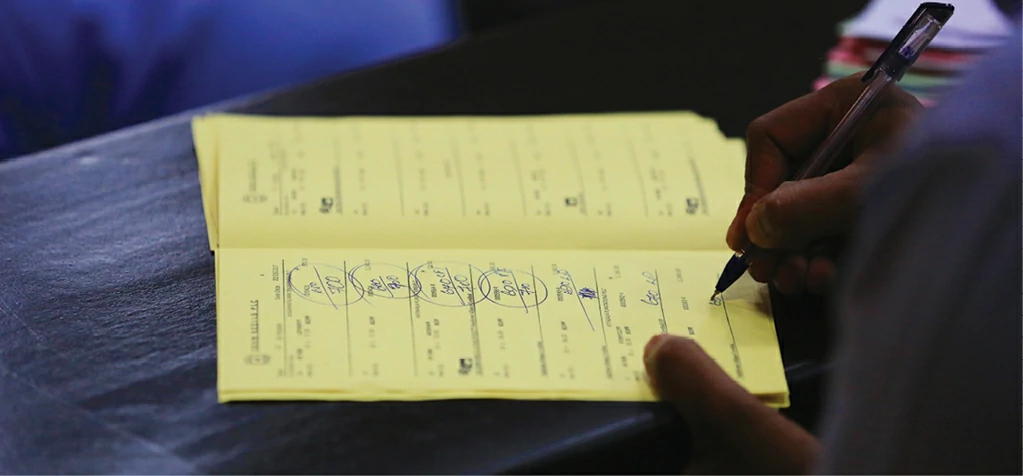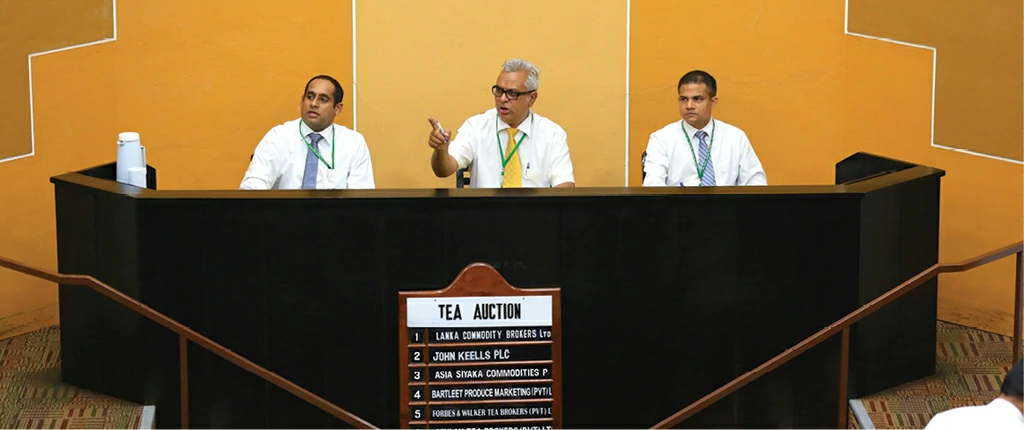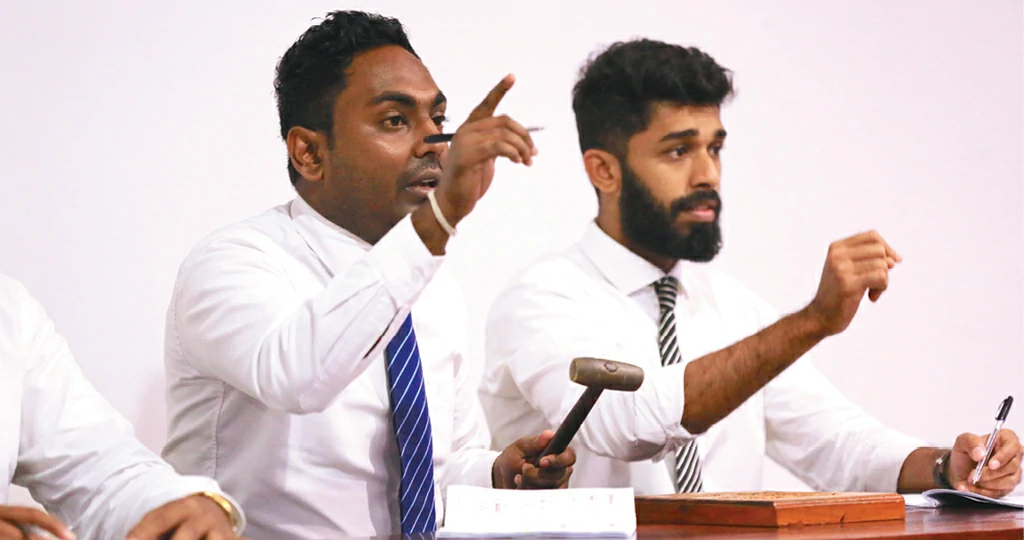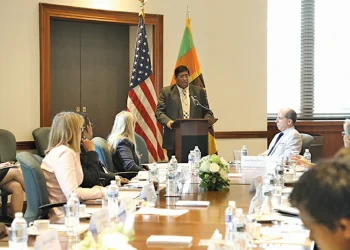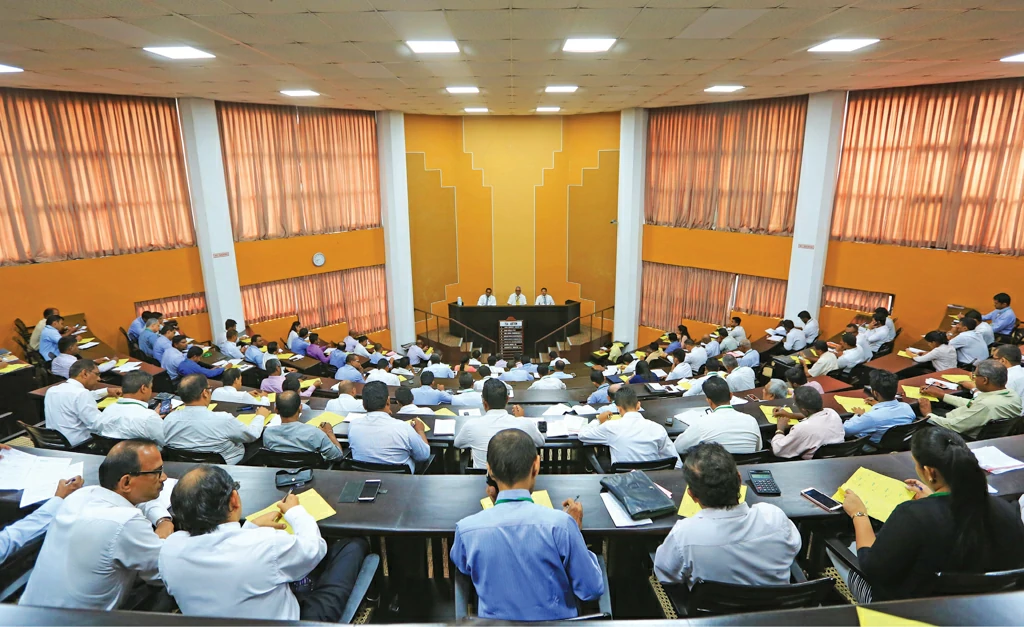
The Colombo Tea Auction, the largest single-origin tea auction in the world, has played a stellar role in the 150-year history of Ceylon Tea.
By Yomal Senerath-Yapa
Photos Menaka Aravinda and Vishwathan Tharmakulasingham
The Colombo Tea Auction takes place on two consecutive days each week at the Ceylon Chamber of Commerce. In each of the three tiered auditoria, Selling Brokers conduct the auction. This happens at such a rapid pace, so much so that it is impossible for a visitor to make any sense of the string of words that are followed by the decisive striking of the gavel on the block.
Each drop of the hammer by the auctioneer signifies that a transaction amounting to many thousands of rupees had been concluded within a matter of minutes.
Each bidder tries to outdo his competitors in operating on over 12,500 tea invoices every week. The auctioneer has to maintain unim-paired eye contact with each buyer, who is seated on the tiered, semi-circular seating area for participants. This is of importance because only occasionally would a buyer actually voice his bids. He may make subtle gestures such as nod his head, wink an eye or raise a hand, finger or eyebrow, all of which are equally customary.
It Is Altogether A Very Transparent, Orderly And Disciplined System.
The role of the tea auction is but pivotal, because regulations restrain producers from disposing their teas in any significant volume outside this channel. The auction is therefore conducted in a very transparent, orderly and disciplined manner. Prices paid for every tea on offer are overtly declared, which provides a ‘level playing field’ for all the participants. Thereby, an optimum price for the range of qualities on offer are ensured. Following this mode, the auction handles as much as 300 million kilos of tea annually.
The first tea auction in Ceylon, held privately in the offices of Somerville & Company, Produce Brokers, took place on July 30, 1883. This comprised five invoices of tea; all of which remained unsold, as the bids fell short of expectations.
However, by the 1890s, through the notable growth in production volumes, the tea industry acquired a position of great importance in the commercial sector of the country, necessitating the formal regulation in the regular disposal of the available tea. Entreaties of the producers brought about the forming of ‘The Colombo Tea Traders’ Association’ (CTTA) for such purposes, under the auspices of the Ceylon Chamber of Commerce, the primary objective of which is to safeguard the interests of the Tea Trade.
One of its first tasks was to formalise the loose collection of rules under which tea was being auctioned. Thus, on November 1, 1894, the By-Laws and Conditions for the Sale of Tea by Public Auction were officially ratified. The CTTA periodically reviewed these rules to meet the requirements of changing circumstances of the Trade.
An Average Price Is Constantly Maintained. In This Way, The Auction Handles As Much As 300 Million Kilos Of Tea Annually.
Colombo is considered the model auction centre, on account of its degree of efficiency and professionalism. It is supported by a sound infrastructure, developed over a period of more than 130 years, which now consists of three auction rooms, of which two are purpose-built for the tea auction.
The logistics in relation to each auction commences two and a half weeks preceding the actual date of sale. Two ounce samples of each lot/invoice of tea to be auctioned are distributed to prospective buyers through the brokers. The buyers, then, evaluating these samples visually and olfactorily and by texture and taste, determine the price range within which they would bid for the teas on offer at the auction.
A unique feature of this auction is that the producers are unfailingly paid for their product by the seventh day following the auction at which it is sold.
In 1998, when the legendary London Tea Auction ceased to operate, the Colombo Tea Auction became one of the oldest functioning tea auctions. It also lays claim to being the largest single-origin tea auction in the world.
Colombo will, doubtless, continue to retain its position in being one of the leading auction centres in the world, maintaining an edge over the other, with superior quality and prices.
